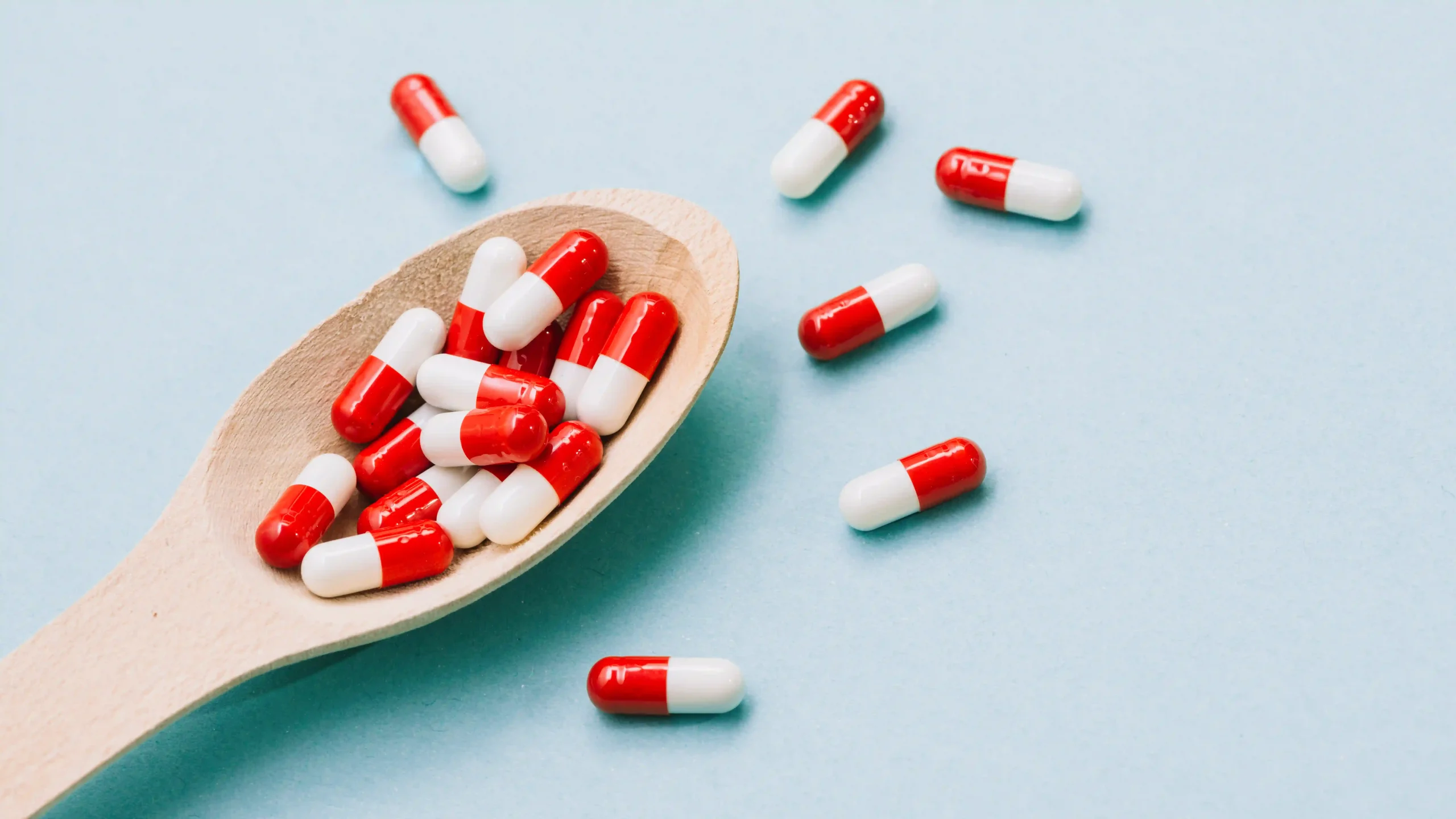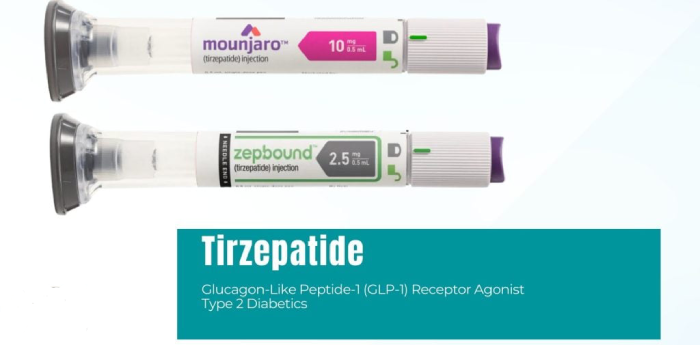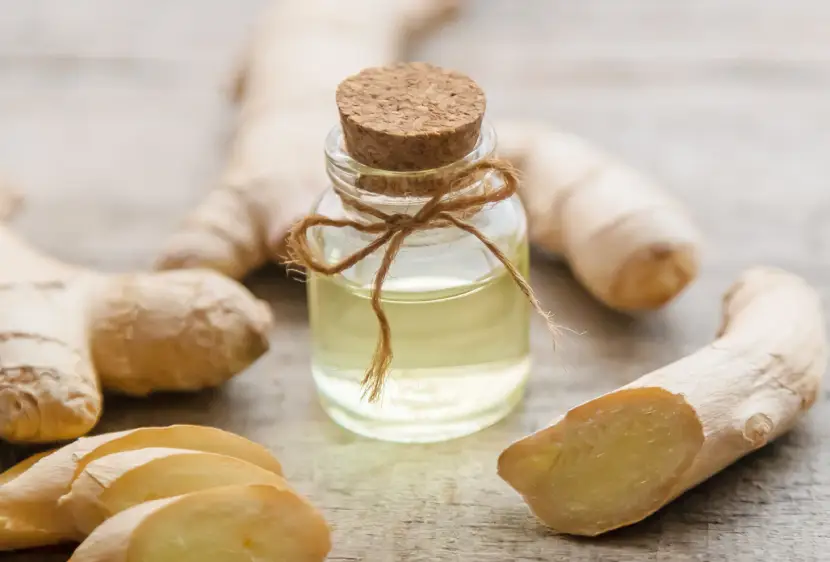Hey there, health enthusiasts! Are you ready to dive into the world of a little peptide that packs a big punch? Buckle up, because we’re about to take a wild ride through the fascinating realm of octreotide. This isn’t your average joe of the medical world – oh no, it’s the superhero of the gastrointestinal tract, the knight in shining armor for those pesky bleeds, and the savior of many a troubled tummy. So, grab your favorite healthy snack (maybe skip the popcorn for this one), and let’s get this party started!
What’s the Deal with Octreotide?
First things first, let’s break down what octreotide actually is. Picture this: you’ve got this tiny molecule, a peptide to be exact, that’s like a mini-me version of a naturally occurring hormone in your body called somatostatin. Now, somatostatin is pretty cool on its own, but octreotide? It’s like somatostatin went to the gym, got a makeover, and came back as a supercharged version of itself.
Octreotide is synthetic, which means it’s man-made, but don’t let that fool you. This little wonder is designed to mimic somatostatin’s effects, but it’s got some tricks up its sleeve that make it even more powerful. It’s like nature and science had a baby, and that baby grew up to be a gastrointestinal superhero.
The Origin Story: Where Does Octreotide Come From?
Now, you might be wondering, “Where did this magical peptide come from?” Well, my curious friends, octreotide didn’t just fall from the sky (although that would make for a pretty cool story). It was actually discovered and developed by scientists who were looking for ways to harness the power of somatostatin for longer periods.
You see, natural somatostatin is like that friend who’s always in a hurry – it does its job quickly and then disappears. But octreotide? It’s the friend who sticks around, helping out long after the party’s over. Scientists engineered it to have a much longer half-life than somatostatin, meaning it stays in your system longer and keeps working its magic.
Octreotide Mechanism of Action: How Does This Superhero Work?
Alright, let’s get a little nerdy for a second (don’t worry, I’ll keep it fun). The octreotide mechanism of action is like a well-choreographed dance routine. It swoops in and binds to special receptors in your body, primarily in the gastrointestinal tract and pancreas. These receptors are like little docking stations, and when octreotide locks in, it triggers a cascade of effects.
First up, it tells your body to pump the brakes on producing certain hormones. It’s like octreotide is the responsible friend at a party, telling everyone, “Okay, maybe we’ve had enough for tonight.” This includes slowing down the production of growth hormone, insulin, and glucagon. But that’s not all – it also decreases the secretion of digestive enzymes and reduces blood flow to the intestines.
Now, you might be thinking, “Why on earth would we want to do all that?” Well, my friends, this is where octreotide really shines. By controlling these processes, it can help manage a whole host of gastrointestinal issues. It’s like having a traffic controller for your gut!
Octreotide for GI Bleed: The Leak-Stopping Superstar
Let’s talk about one of octreotide’s starring roles: tackling gastrointestinal bleeds. Picture this: you’ve got a leaky pipe in your gut (gross, I know, but stick with me). Octreotide swoops in like a plumber with superpowers. It reduces blood flow to the area, which is like turning off the main water valve. But it doesn’t stop there – it also helps your blood clot more effectively, essentially patching up the leak.
This is particularly useful when dealing with varices, which are basically varicose veins in your esophagus or stomach. These bad boys can rupture and cause some serious bleeding. But octreotide and varices? They’re like oil and water – octreotide helps keep those varices in check, reducing the risk of bleeding and helping to stop it if it does occur.
Octreotide Injection: The Superhero’s Mode of Transport
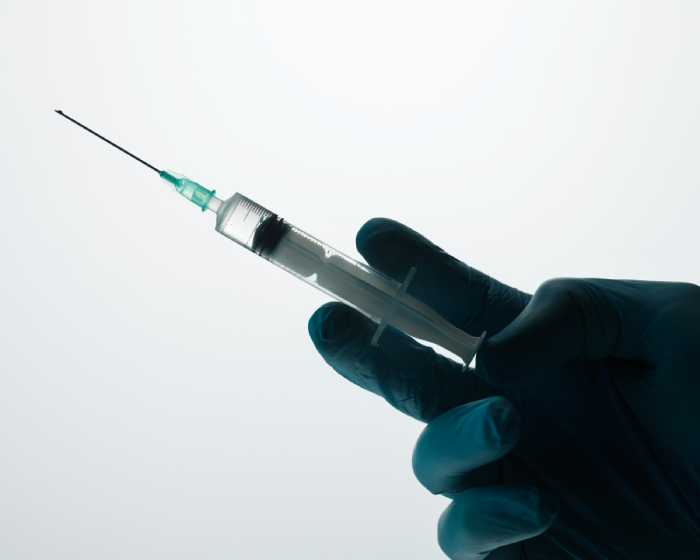
Now, you might be wondering how this wonder drug gets into your system. Well, it’s not by wearing a cape and flying, that’s for sure. Octreotide injection is the name of the game here. It’s typically given as a shot under the skin (subcutaneous) or into a vein (intravenous).
The octreotide injection is like a little escape pod for our superhero peptide. It delivers octreotide directly into your bloodstream, allowing it to zoom around your body and get to work fast. And let me tell you, when you’re dealing with something like a GI bleed, fast action is exactly what you want!
Octreotide Dose: Finding the Sweet Spot
Alright, so we know octreotide is powerful stuff, but how much do you actually need? Well, the octreotide dose can vary depending on what it’s being used for. It’s not a one-size-fits-all kind of deal. Your doctor will determine the right dose for you based on your specific condition and how your body responds.
For example, if you’re dealing with a GI bleed, you might start with a higher dose given intravenously, and then switch to a lower maintenance dose. It’s like starting with a strong cup of coffee in the morning and then sipping on green tea throughout the day to keep you going.
Octreotide Drip: The Steady Stream of Superhero Power
Sometimes, a single injection just won’t cut it. That’s where the octreotide drip comes in. This is when octreotide is given as a continuous infusion, usually through an IV. It’s like having a constant supply of our superhero peptide flowing into your body, ready to tackle any villainous GI issues that pop up.
The octreotide drip is particularly useful in situations where you need ongoing support, like with severe or persistent GI bleeding. It’s the medical equivalent of having octreotide on speed dial, always ready to jump into action.
Octreotide for Hypoglycemia: The Blood Sugar Balancer
But wait, there’s more! Octreotide isn’t just a one-trick pony. It’s also got mad skills when it comes to managing hypoglycemia, or low blood sugar. This is particularly useful for people with certain types of tumors that cause too much insulin production.
When octreotide steps in, it’s like a stern teacher telling those overactive cells, “Alright, that’s enough insulin for now. Let’s bring those blood sugar levels back up to where they should be.” It helps prevent those scary low blood sugar episodes that can make you feel shaky, sweaty, and downright awful.
Octreotide Infusion: The Extended Release Version
Now, let’s talk about the octreotide infusion. This is like the extended-release version of our superhero peptide. Instead of getting all the octreotide at once, it’s slowly released into your body over time. It’s perfect for situations where you need a steady supply of octreotide to keep things under control.
The octreotide infusion can be a game-changer for people with ongoing conditions that need constant management. It’s like having a personal octreotide bodyguard, always on duty, always ready to step in if things start to go south.
Octreotide Cost: The Price of Superhero Powers
Now, I know what you’re thinking. “This sounds amazing! But what’s the catch?” Well, my friends, as with many superhero-level treatments, the octreotide cost can be pretty hefty. It’s not exactly pocket change we’re talking about here.
The exact cost can vary depending on the dose, frequency, and where you’re getting it from. But let’s just say it’s probably not something you want to pay out of pocket for. This is where good insurance coverage becomes your sidekick in the fight against GI issues.
Octreotide and Chylothorax: The Lymph Leak Buster
Just when you thought octreotide couldn’t get any cooler, it pulls another trick out of its hat. Enter chylothorax, a condition where lymph fluid leaks into the space around your lungs. Sounds pretty scary, right? Well, octreotide says, “Hold my peptide,” and gets to work.
Octreotide and chylothorax is a match made in medical heaven. Our superhero peptide helps reduce the production of lymph fluid, essentially turning down the faucet that’s causing the leak. It’s like octreotide is plugging the holes in a leaky boat, helping to keep your lungs high and dry.
Octreotide and Hepatorenal Syndrome: The Liver and Kidney Tag Team
Now, let’s talk about a real tough customer: hepatorenal syndrome. This is a serious condition where liver disease leads to kidney failure. It’s like your liver and kidneys are having a massive argument, and your whole body is suffering for it.
Enter octreotide. When it comes to octreotide and hepatorenal syndrome, our peptide superhero doesn’t work alone. It often teams up with other medications to improve blood flow to the kidneys and help them function better. It’s like octreotide is the mediator in the liver-kidney feud, helping to restore peace and function to your body.
Octreotide vs Lanreotide: The Superhero Face-Off

In the world of somatostatin analogs (that’s the fancy term for synthetic versions of somatostatin), octreotide isn’t the only player in town. Enter lanreotide, octreotide’s cousin. Now, when it comes to octreotide vs lanreotide, it’s not so much a battle as it is a friendly rivalry.
Both of these peptides work in similar ways, but they have some differences in how they’re used and how often they need to be given. It’s like comparing two different brands of superhero capes – they both help you fly, but one might be more comfortable for long-term wear.
Octreotide and Cirrhosis: The Liver’s Little Helper
Cirrhosis is like the big bad wolf of liver diseases, causing all sorts of havoc in your body. But never fear, octreotide is here! When it comes to octreotide and cirrhosis, our peptide pal can help manage some of the complications that come with this condition.
For example, octreotide can help control bleeding from varices, which is a common and dangerous complication of cirrhosis. It’s like octreotide is the bouncer at the liver’s nightclub, keeping things under control when cirrhosis tries to start a fight.
Octreotide and Diarrhea: The Gut’s Traffic Controller
Let’s talk about a less glamorous but oh-so-important role of octreotide: managing diarrhea. Now, I know diarrhea isn’t exactly dinner table conversation, but it’s a real problem for many people, especially those with certain medical conditions.
Octreotide and diarrhea are like oil and water – they just don’t mix. Octreotide helps slow down the movement of fluid through your intestines and reduces the amount of fluid secreted. It’s like octreotide is a traffic controller for your gut, helping to keep things moving at a more… shall we say, manageable pace.
Octreotide and Liver Failure: The Lifesaving Intervention
When it comes to liver failure, things can get pretty dicey pretty fast. But guess who’s ready to swoop in and save the day? You guessed it – our peptide pal, octreotide.
Octreotide and liver failure often go hand in hand in the medical world. Octreotide can help manage some of the life-threatening complications of liver failure, like bleeding from varices. It’s like octreotide is the emergency responder, rushing in to stabilize the situation while other treatments can be lined up.
Octreotide and Somatostatin: The Dynamic Duo
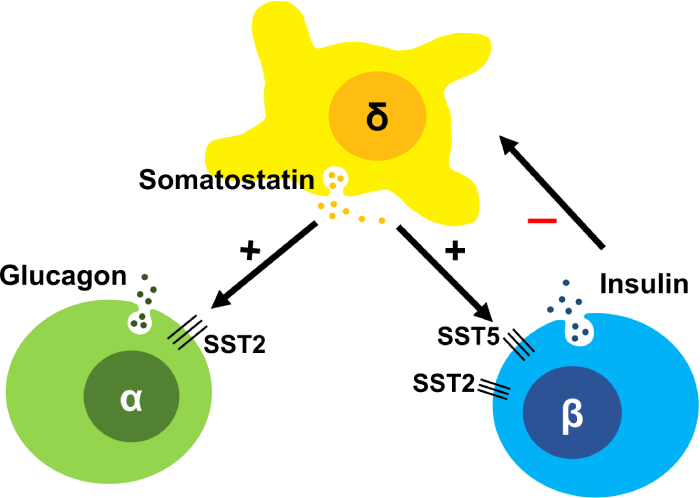
Remember how we said octreotide is like a supercharged version of somatostatin? Well, let’s dive a little deeper into that relationship. Octreotide and somatostatin are like the Batman and Robin of the endocrine world – they work in similar ways, but octreotide has some superpowers that somatostatin doesn’t.
For one, octreotide lasts much longer in the body than somatostatin. It’s like somatostatin is a sprinter, while octreotide is a marathon runner. This means octreotide can provide more consistent and long-lasting effects, which is super important when managing chronic conditions.
Octreotide for Variceal Bleeding: The Bleed Stopper
We’ve mentioned varices a few times, but let’s really zoom in on how octreotide helps with this potentially life-threatening condition. Octreotide for variceal bleeding is like sending in the SWAT team to deal with a hostage situation.
When varices start bleeding, it’s an emergency. Octreotide jumps into action, reducing blood flow to the varices and helping to stop the bleeding. It’s often used as a first-line treatment, buying precious time while other interventions are prepared. It’s like octreotide is holding down the fort until the cavalry arrives.
Octreotide and Portal Hypertension: The Pressure Reliever
Portal hypertension is a fancy way of saying there’s too much pressure in the blood vessels connecting your liver to your intestines. It’s a common complication of liver disease and can lead to all sorts of problems, including those pesky varices we keep talking about.
When it comes to octreotide and portal hypertension, our peptide superhero steps up to the plate once again. It helps reduce the pressure in these blood vessels, potentially preventing complications like variceal bleeding. It’s like octreotide is a pressure release valve for your portal system.
Octreotide for Chyle Leak: The Lymph Whisperer
Remember how we talked about octreotide helping with chylothorax? Well, it turns out octreotide is pretty handy for dealing with chyle leaks in other parts of the body too. Chyle is that milky lymph fluid that can cause all sorts of problems when it leaks where it shouldn’t.
Octreotide for chyle leak is like sending in a specialized clean-up crew. It reduces the production of chyle, giving the leak a chance to heal. Whether the leak is in your chest, abdomen, or elsewhere, octreotide is ready to step in and help mop things up.
Oral Octreotide: The Future of Peptide Power?
Now, here’s some exciting news for those who aren’t fans of needles (and let’s be honest, who is?). Scientists have been working on developing oral octreotide. That’s right, a pill form of our superhero peptide!
Oral octreotide is still in the early stages, and it’s not widely available yet. But it represents an exciting potential future where getting your octreotide could be as simple as popping a pill with your morning coffee. It’s like the difference between having to go to a phone booth to change into your superhero costume versus just ripping open your shirt – much more convenient!
Intravenous Octreotide: The Fast-Acting Formulation
Last but certainly not least, let’s talk about intravenous octreotide. This is the form used when you need octreotide to start working ASAP. It’s like the express train of octreotide delivery methods.
Intravenous octreotide is often used in emergency situations, like acute variceal bleeding, where every second counts. It gets the octreotide into your bloodstream lightning-fast, allowing it to start working its magic right away. It’s like the octreotide equivalent of hitting the nitro boost in a race car game.
The Final Word: Octreotide, the Gut’s Best Friend
So there you have it, folks – a whirlwind tour of the wonderful world of octreotide. From GI bleeds to diarrhea, from hypoglycemia to chyle leaks, this little peptide packs a powerful punch. It’s truly the Swiss Army knife of gastrointestinal treatments.
Remember, while octreotide is incredibly versatile and effective, it’s a serious medication that should only be used under the guidance of a healthcare professional. It’s not something you can just pick up at your local pharmacy for a tummy ache.
But for those who need it, octreotide can be a real lifesaver. It’s a shining example of how far medical science has come, and a glimpse of the incredible treatments that are possible when we harness the power of our own biology.
So the next time you hear about octreotide, you can nod knowingly and say, “Ah yes, the superhero of the gut!” And who knows? Maybe one day, we’ll all be taking our daily octreotide pills to keep our digestive systems running smoother than a well-oiled machine. Until then, here’s to good gut health and the amazing treatments that help us maintain it!
